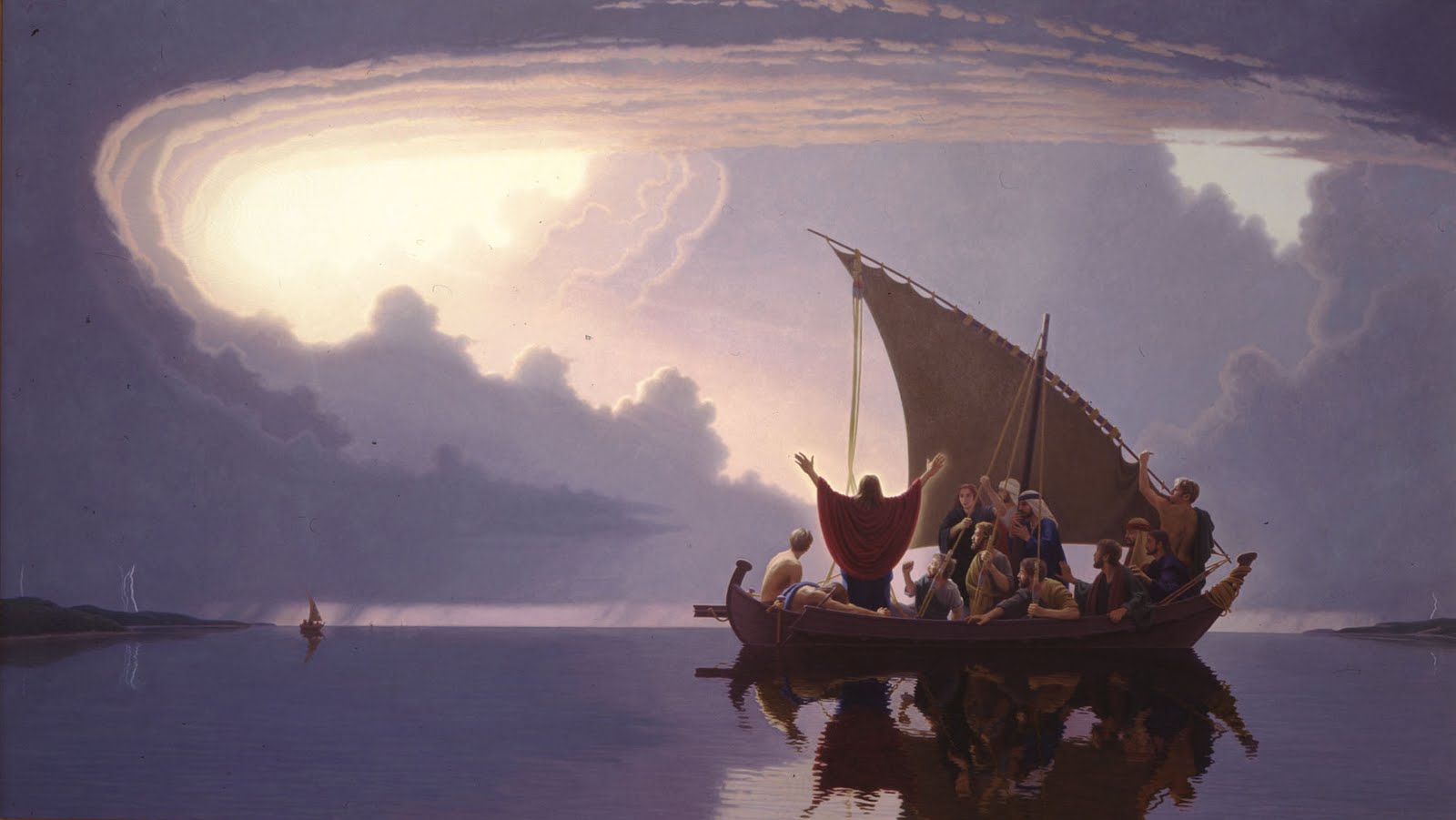By: Brian G. Chilton | December 7, 2020
People are stressed. Sure, that is the understatement of the year. But it’s true. People are stressed for numerous reasons. Political issues, the pandemic, isolation, and financial strain are among many of the catalysts causing distress for individuals. Christians are among those who seem to be distressed the most. But why? I do not claim any super-spirituality for myself by any stretch of the imagination. However, it must be asked, where is our faith? Christians say they have faith. But does faith not especially prove true when things are rough?
This is a question that was posed to the disciples. Let your mind go back to an event preserved in Mark 4:35–41. The time: The first-century, circa AD 28. The place: The Sea of Galilee in Israel. Jesus, fully knowing what would happen, said to the disciples, “Let’s cross over to the other side of the sea” (Mark 4:35).[1] Without causing a stir, the disciples agreed. They were probably excited to perhaps catch a fish or two while they were on the water. Fishermen love to fish. Additionally, the company of disciples had been inundated with large crowds pressing to see and hear from Jesus. This trip was a welcome getaway from the bustling life of ministry; one that led them to act as Jesus’s security guards trying to keep the mobs from overwhelming Jesus.
Tragedy struck what should have been a pleasant trip while they were midway across the sea. A great windstorm came upon them. The power of the wind stirred up the sea causing waves to crash into the boat. The disciples struggled to keep the water out of the boat. They were fighting a losing battle. More water entered the boat than what they could cast out. The disciples thought they were doomed. Worse yet, Jesus was not bothered by their conundrum. He was found lying asleep in the stern of the boat. Distressed people are annoyed by other people who remain calm. Didn’t Jesus care about their plight? How could he remain sleeping? An unnamed disciple, most likely Peter, yelled at Jesus, saying, “Teacher! Don’t you care that we’re going to die?” (Mark 4:38). What was Jesus’s problem, anyway? How dare Jesus remain calm when everything was going haywire?
Jesus responded. When Jesus responds, things happen. He stood up, probably wiping the sleep from his eyes and perhaps cracking his neck, stretched out his arms, and said, “Silence! Be still” (Mark 4:39)! At that, the wind immediately stopped blowing and the sea became tranquil and serene. Terrified out of their wits, the disciples could not believe what they just witnessed. Jesus turned to them with steely eyes and asked, “Why are you still afraid? Do you still have no faith?” (Mark 4:40).
Jesus continues to ask his disciples this question. This time, he asks it of us. Jesus is in heaven, still alive and well after having defeated death and ascending to the right hand of the Father. Here we are today facing our own storms. Yet Jesus’s challenging words remain. Where is our faith? This question challenges at least three areas of our trust in him.
Where is Our Faith in God’s Probity?
Probity is the righteous characteristic of holding strong moral principles, honesty, and decency. God is the absolute good (1 John 1:5). God is the source of goodness (3 John 11). If God is the absolute good and the source of goodness, then God has the best of intentions from even the most difficult of circumstances. People generally want results without putting in the effort. Most preachers want to be like Billy Graham but very few are willing to put in the hours of study and preparation that Dr. Graham did. Many young men want to look like famed bodybuilders, but few want to put in the work to get there. Likewise, people want to be sanctified, but they don’t want to endure the process that God uses to build up his people. Do we trust in the goodness of God?
Where is Our Faith in God’s Power?
The disciples were stunned at the power that Jesus demonstrated. But should they have expected any different from Jesus? Scripture indicates that Jesus was not only the Son of God but that Jesus was also instrumental in creation (Col. 1:16). Before the disciples are criticized for their lack of faith, modern Christians must ask themselves if they still believe in the power of God. If they do, then they will realize that God is greater than any pandemic. They will also realize that God is greater than any political power. The believer should still live responsibility, seeking out the best for those around them. However, one should not be overcome with fear. Do we trust in the power of God?
Where is Our Faith in God’s Promises?
Here is the clincher. Jesus told us that pandemics, wars, and national powers were going to get worse as the timing of Christ’s return hastens. The closer the world gets to the return of Christ, the more chaotic the world becomes. Jesus said, “When you hear of wars and rumors of wars, don’t be alarmed; these things must take place, but it is not yet the end” (Mark 13:7). He goes on to say, “There will be famines, and earthquakes in various places” (Matt. 24:7). Interestingly, some translations add epidemics or pandemics to the list. No matter whether epidemics should be added or not, the pale green horseman of the book of Revelation notes that the world will be plagued by pandemics before the return of Christ (Rev. 6:8). Jesus teaches that all these things are but the “beginning of birth pains” (Mark 13:8). A woman begins to experience labor pains before the baby is eventually born. Likewise, global and national disturbances are but labor pains notifying individuals that Jesus’s return is imminent. God has already laid out his prophetic plans. Do we trust in God’s promises?
Conclusion
Perhaps our lack of faith speaks more to the biblical illiteracy of our times than anything else. Maybe the reason that people have no more trust in God’s plan is that preachers and teachers are not emphasizing the teachings and prophetic message of Jesus. Or it could be that the modern absence of faith in God originates from a trust in self more than a trust in the Savior. No matter the cause, the modern believer needs to realize that pandemics, wars, and disturbances do not take God by surprise. God is working to bring us to a place where pandemics, wars, and disturbances do not exist. Believers have every reason to trust God, especially in times like these.
About the Author
Brian G. Chilton is the founder of BellatorChristi.com, the host of The Bellator Christi Podcast, and the author of the Layman’s Manual on Christian Apologetics. He received his Master of Divinity in Theology from Liberty University (with high distinction); his Bachelor of Science in Religious Studies and Philosophy from Gardner-Webb University (with honors); and received certification in Christian Apologetics from Biola University. Brian is enrolled in the Ph.D. program in Theology and Apologetics at Liberty University and is a member of the Evangelical Theological Society and the Evangelical Philosophical Society. Brian has served in pastoral ministry for nearly 20 years.
https://www.amazon.com/Laymans-Manual-Christian-Apologetics-Essentials/dp/1532697104
© 2020. BellatorChristi.com.
[1] Unless otherwise noted, all quoted Scripture comes from the Christian Standard Bible (Nashville, TN: Holman, 2017).






[…] Source: Where is Our Faith? […]